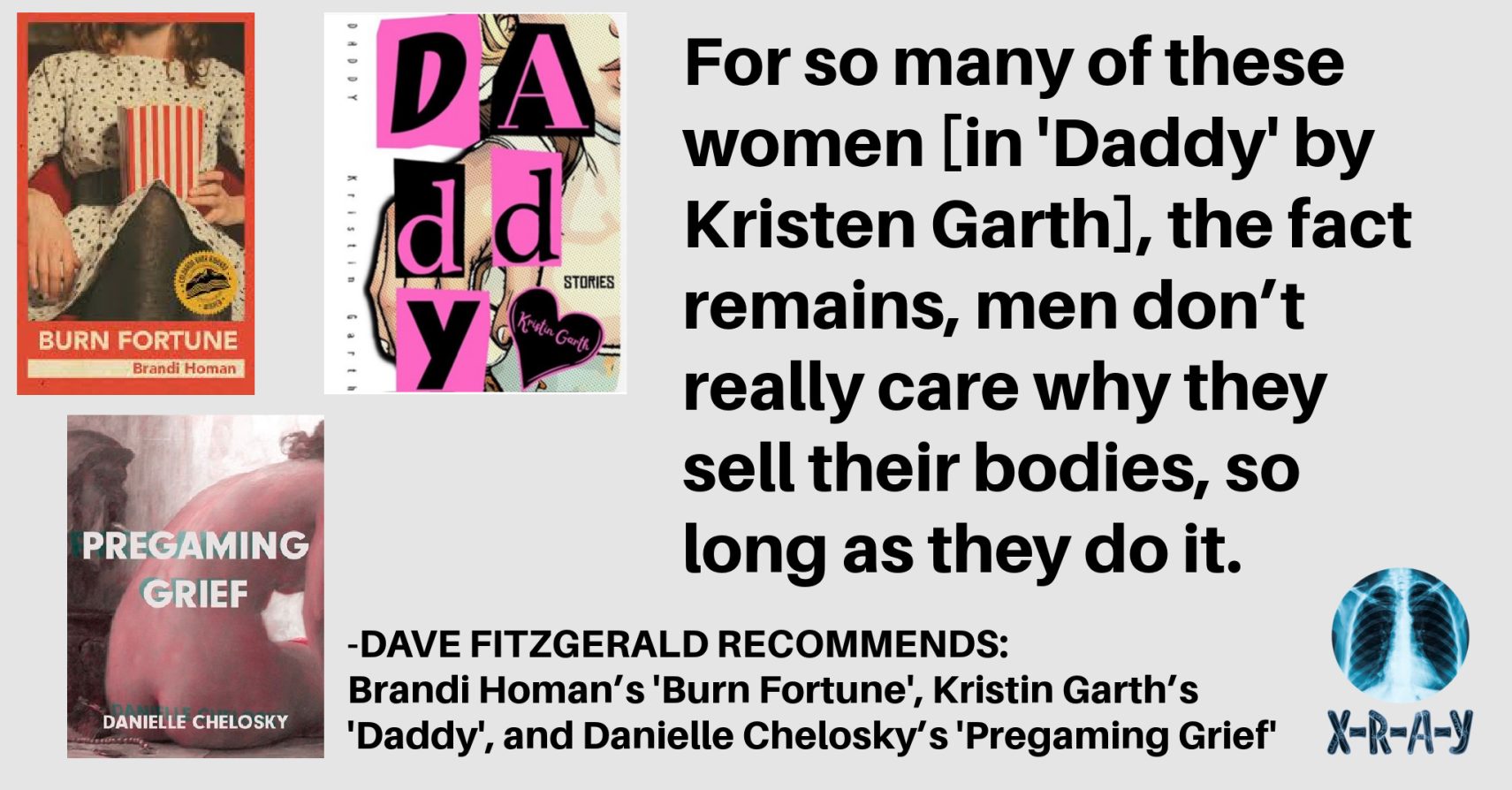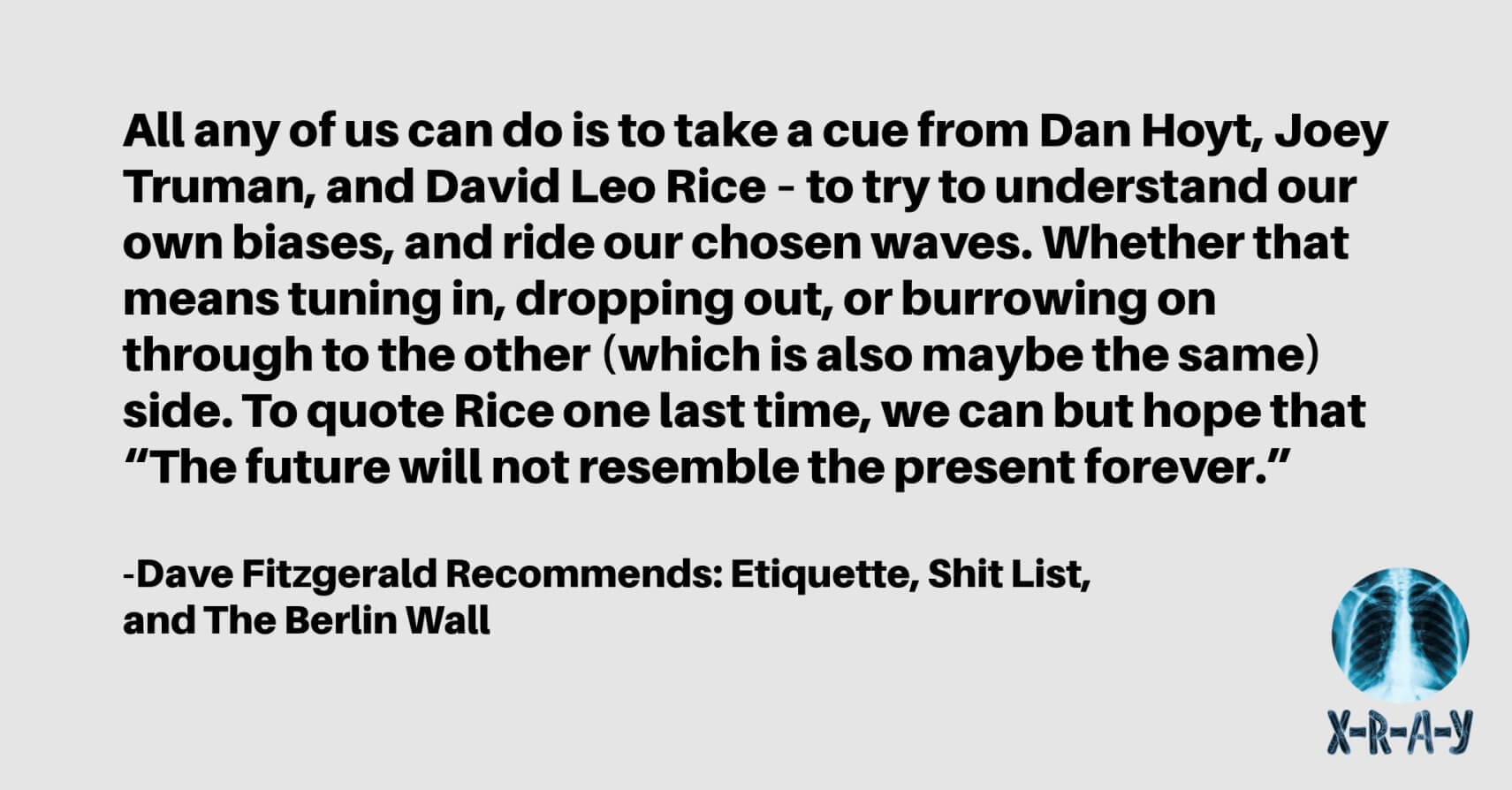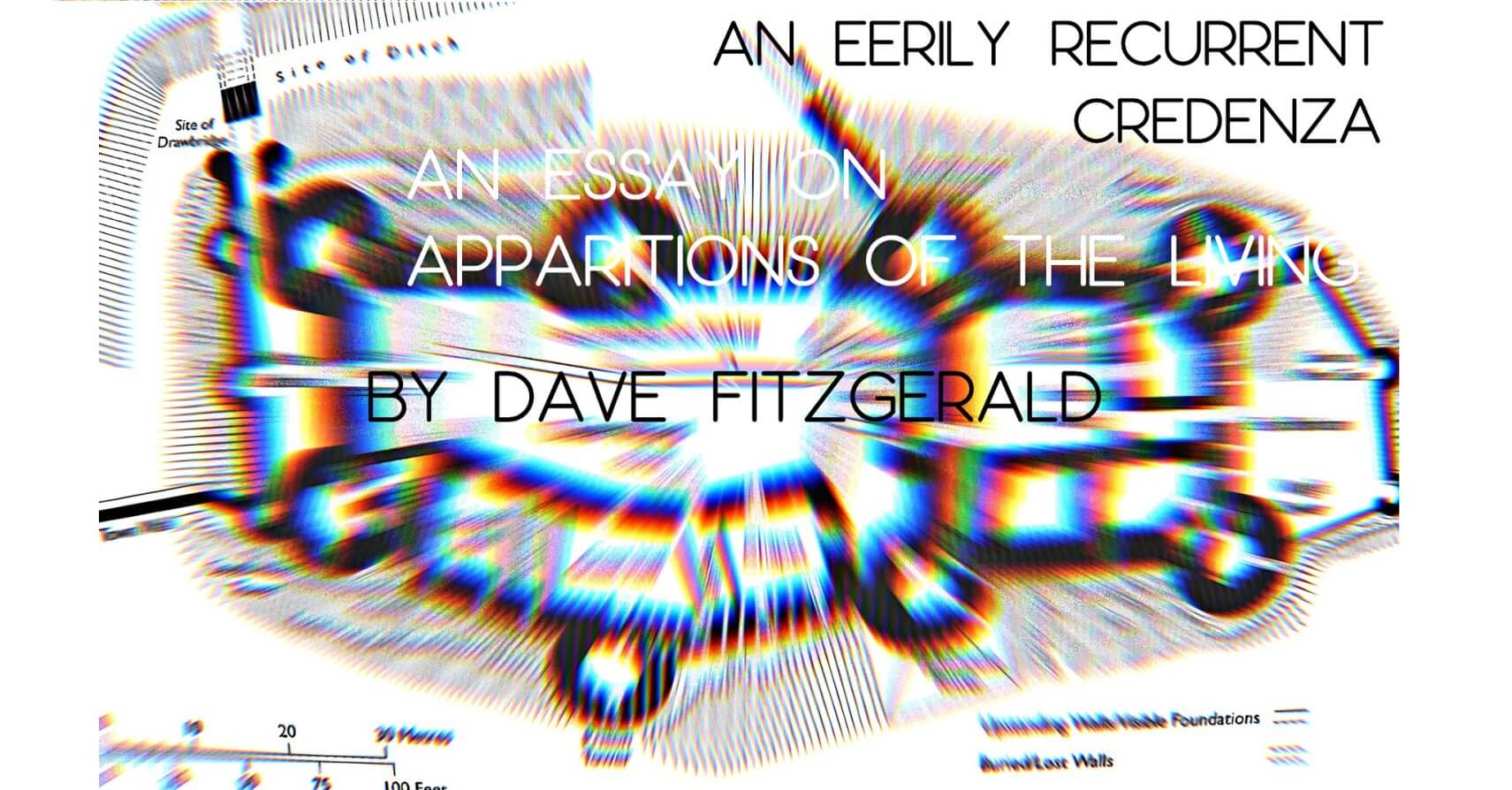
DAVE FITZGERALD RECOMMENDS: Brandi Homan’s ‘Burn Fortune’, Kristin Garth’s ‘Daddy’, and Danielle Chelosky’s ‘Pregaming Grief’
Paint Your Wagon, the 1969 Western musical starring Jean Seberg, Clint Eastwood, and Lee Marvin, was a historic commercial flop, by turns both mindbogglingly strange, and mind-numbingly dull in its depiction of an anonymous, gold rush era mining camp cycling through the increasingly corruptive stages of insular capitalism. While its atonally sing-songy, borderline nihilistic theme reprises (many, many times over, burrowing into your brain and simply refusing to resolve), we watch as some 400 men invest their lucky-struck earnings into six agreeably trafficked women until their No Name tent City grows into a hedonist boomtown—a collection of 20-some-odd saloons that…



